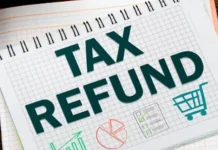
In India, people have a lot of cash kept in their homes. It is an old tradition to do so here. There is no specific rule to stop you from keeping cash at home. However, if some things are not taken into consideration then trouble may arise for you. Let us know about it in detail.
In India, there is a very old trend of keeping cash at home for any emergency. Even though banks provide many types of offers and facilities to their customers, people still give more importance to keeping money at home for any unexpected situation. However, is there any limit on how much money can be kept at home (cash limit at home)? Do you have to give information about the cash lying in the house after a certain amount to the Income Tax Department? The answer is, no.
You can keep as much cash as you want at home and there is no legal obligation to give this information to any authority. However, whatever cash you keep, you should have information about its legally valid source and related documents. This means that you must keep with you the documents related to where that money came from. If someone has a large amount of cash in his house and the Income Tax Department raids that house, then the officials will demand these documents.
Tax has been paid
If the cash kept in your house comes under the ambit of tax, then tax should have been paid on it. If someone does not have all the documents related to the sources and taxes paid, then he can get into big trouble. If this happens, not only the Income Tax Department but also ED and CBI can question you. However, if your correct documents are present then there is no need to panic.
How much fine can be imposed?
If you are asked about the source of cash during a raid by the Income Tax Department and you are not able to show the correct documents or any discrepancy is found in the documents, then you may be fined. This fine will be very heavy. According to Income Tax law, you will have to pay 137 percent of the cash found in your house as penalty. This means that the amount of cash you have will be gone, on top of that you will have to pay 37 percent more.





